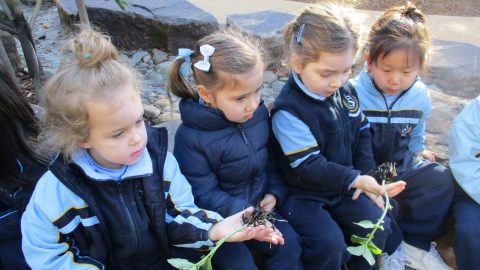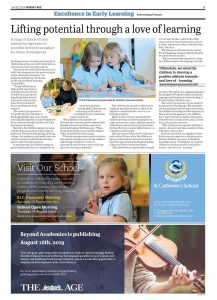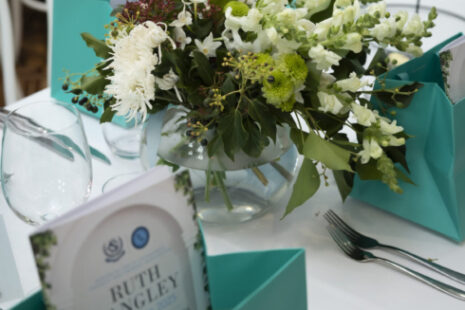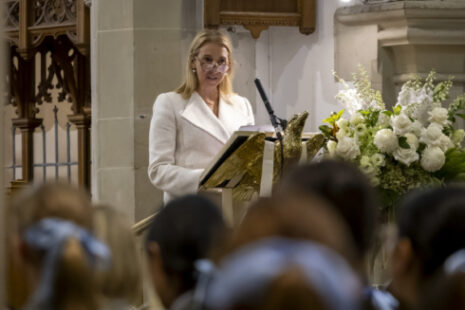Lifting potential through a love of learning

A range of hands-on and interactive experiences provides the best foundation for future development.

‘Ultimately, we want the children to develop a positive attitude towards – and love of – learning.’ Sarah Bethune Head of ELC
The St Catherine’s program inspires children’s natural curiosity. Invoking a sense of wonder and curiosity in children lies at the core of St Catherine’s coeducational early learning program.
“Research shows that the early years of a child’s development are the most crucial in terms of brain development,” explains Sarah Bethune, who heads up the school’s Early Learning Centre (ELC). “Young children need high-quality experiences and interactions with other children in a group setting during these formative years in order to maximise their potential for future learning and development.”
The centre’s program is informed by the key principles of the Reggio Emilia approach, an educational philosophy that acknowledges children’s natural curiosity and the role of the learning environment. Each day, the children engage in a range of individual and small-group learning experiences. This includes painting, drawing, collage, clay sculpture, and small-scale construction using wooden blocks and other natural and recycled materials. In small groups, the children engage in games and puzzles that are designed to develop their problemsolving skills. They also use technology and books in meaningful ways to undertake research projects.
“The children work together collaboratively to discuss and investigate their thoughts, theories and ideas, and create plans and designs,” Bethune says. “These group-based projects provide the children with a rich platform for learning.” Whole-group experiences such as stories, discussions and music provide the children with the opportunity to “work collaboratively and develop a sense of belonging to the learning community.”
The children also attend weekly classes taught by specialist teachers, which is designed to complement the centre’s core learning program. Music and movement classes help the children develop an understanding of concepts such as beat, tempo, rhythm and pitch, while the perceptual motor program helps develop their gross motor skills, balance, coordination and strength.
Library classes in the new St Catherine’s junior school library allow the children to immerse themselves in literature and further their appreciation and understanding of literacy in the world around them. “The children have opportunities to gather reference books to take back to their classroom for research purposes, or story books to take home to share with their families,” she says.
The four-year-old learners also attend French language classes taught by the junior school French teacher. “This is an immersive experience where the children explore the language verbally, as well as through books, singing and games. It is designed to help the children learn the language and develop an understanding of French culture,” Bethune says. The centre’s programs are also inspired by nature-based pedagogy. The expansive outdoor play space has an important role in the children’s learning and development. In this newly landscaped area, the children have opportunities to engage with natural elements such as sand, water, mud, a creek bed, rocks, plants and trees.
“This setting encourages the children to explore, discover and take considered risks with their outdoor play.” Bethune says there are significant benefits from every experience and interaction
that the children encounter at the Early Learning Centre. “Ultimately, we want the children to develop a positive attitude towards – and a love for – learning.”





